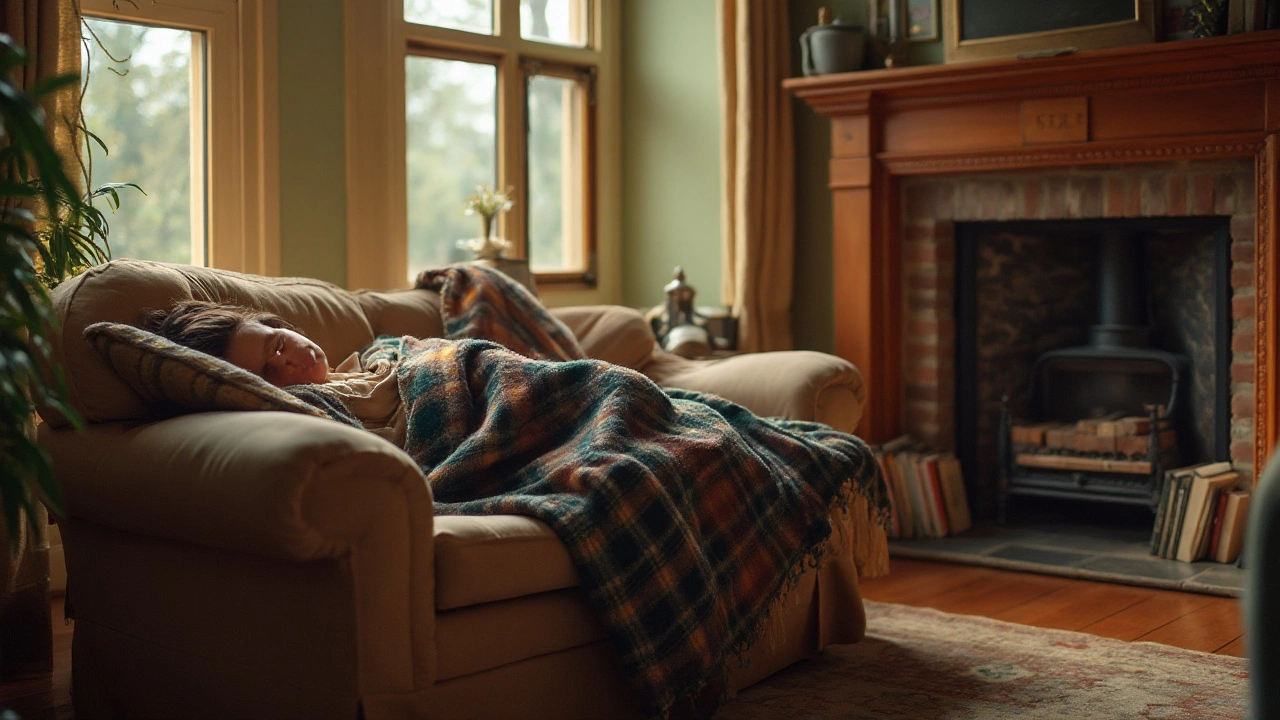Sleep on Couch: How to Make It Cozy and Safe
Got a couch that feels like the only place you can crash after a long day? You don’t need a pricey mattress to get decent rest. With a few smart tweaks you can turn that sofa into a comfortable, health‑friendly sleep spot.
Set Up Your Couch for a Good Night's Rest
First, look at the couch’s firmness. A medium‑firm seat supports your spine better than a squishy one that lets you sink in. If the couch is too soft, add a thin mattress topper or a firm yoga mat piece. It costs little and gives you a flat surface.
Next, think about bedding. A fitted sheet that’s tight enough to stay in place prevents bunching, which can cause twists while you sleep. Layer a lightweight blanket on top – it adds warmth without bulk and can be easily adjusted if you get hot.
Pillows matter, too. Use a regular sleeping pillow for head support and toss a small lumbar pillow or rolled towel behind your lower back. This keeps the natural curve of your spine intact and stops you from waking up with a sore back.
Health Tips for Couch Sleeping
Pay attention to your sleeping position. On a couch, it’s easiest to lie on your side or back. If you’re a side sleeper, place a pillow between your knees to keep hips aligned. Back sleepers should keep a thin pillow under the knees to reduce lower‑back pressure.
Ventilation helps you stay comfortable. If your couch is near a window, open it a crack for fresh air. A fan on low speed can keep the room cool without blowing directly on you, which can cause a dry throat.
Safety first: make sure the couch is stable. Check that the frame isn’t wobbling and that the legs are even. A wobbly couch can shift during the night and lead to an awkward fall.
Keep the area clear. Remove any loose rugs or small items that could cause trips when you get up. A tidy space makes it easier to stretch out and stand up without hurting yourself.
If you plan to sleep on the couch regularly, rotate the cushions every few weeks. This prevents uneven wear and keeps the support consistent across the whole surface.
For occasional naps, you don’t need all the set‑up. A simple folded blanket and a supportive pillow can be enough. Just make sure you don’t stay on the couch for too long if you have chronic back problems – a proper bed is still best for nightly rest.
When a couch feels too short for a full night, try the “half‑lay” method: sit with one leg bent and the other extended, using a pillow under the bent knee for support. This reduces pressure on the hips and can be surprisingly comfortable.
In a pinch, a futon or a sofa‑bed offers a built‑in mattress that’s designed for sleeping. If you have one, use it for weekly deep sleep and keep the couch for short naps.
Bottom line: a couch can be a decent sleep spot if you add a bit of firmness, proper pillows, and pay attention to posture. With these simple steps you’ll avoid aches, stay warm, and wake up feeling refreshed.
Is Sleeping on the Couch Nightly a Healthy Choice?
Couches can seem like cozy refuges, but is it really alright to sleep on them every night? While they offer a casual alternative to beds, long-term use can affect health and comfort. This article explores the potential impacts of daily couch-sleeping on one's posture, sleep quality, and overall well-being. Readers will also gain insights into maximizing comfort and minimizing harm if couch-sleeping can't be avoided.
More
